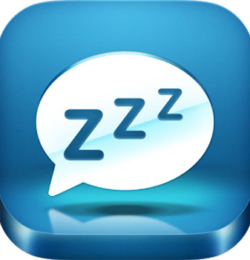Article by the Drummond Team 
New smartphone technology says we can be lulled to sleep with meditation, calming music and even audio books! Many of us who struggle to get to sleep try a variety of methods from yoga to warm baths, long walks, and giving up caffeine – just to name a few. While some of these may help, it seems to only be a temporary fix.
Sleep health – the category covering everything from medication to mattresses – is a massive industry. A 2017 report by McKinsey found it was worth $30bn-$40bn (£23bn-31bn) and growing 8% each year, spurred on by consumers’ exhaustion and fear of developing cancer, obesity and dementia, all of which have been linked to inadequate sleep.
Among the more recent developments for insomniacs has been a flurry of mobile phone apps that claim to help lull us to sleep with specially designed combinations of nature sounds, white noise, hypnotherapy and music.
Dr Neil Stanley, who has more than 36 years’ experience in sleep research and is the author of How to Sleep Well, has his reservations. “Anyone can write a sleep app without any knowledge of sleep,” he says. “The problem is there is no validity for any of these apps to show they work, so the public can’t judge whether they are any good.” There are exceptions, he adds, such as those that rely on cognitive behavioural therapy. “Some do work. And some work only for certain people. But some are just patent nonsense.”
Stanley says the three essential ingredients for good sleep are a dark, quiet, comfortable place; a relaxed body and a quiet mind. “It doesn’t matter what gets you a quiet mind – camomile tea, yoga, listening to Pink Floyd really loudly – as long as you enjoy it.” The problem, he says, is that we are looking to technology to help us sleep, “rather than doing the obvious things”. Six per cent of us spend less than £100 on a bed, he says; 60% spend less than £700. Meanwhile, the first robot sleep-aid will launch next year – for £500. “I’d spend that £500 on a better bed,” he sighs. “We forget common sense and replace it with an app.”
Sweet dreams!
Source: guardian.com
